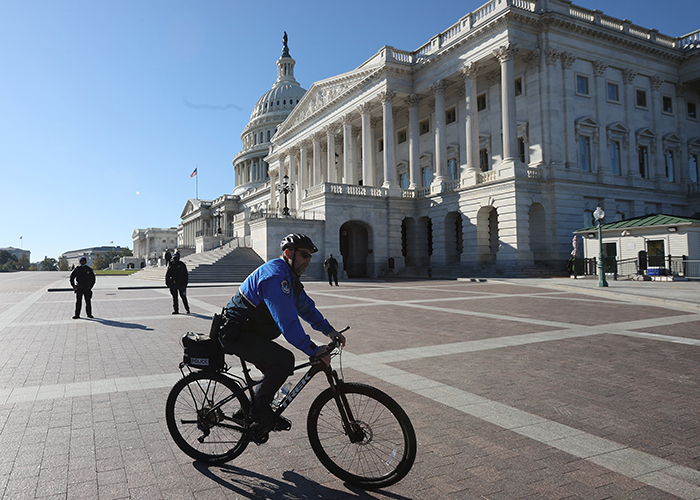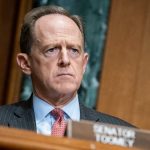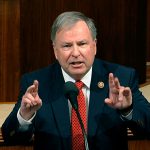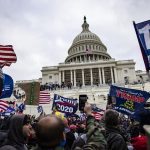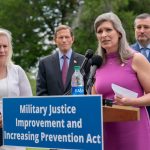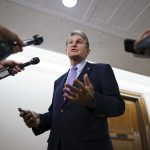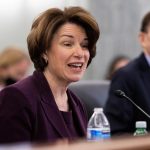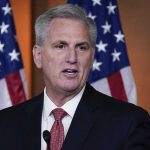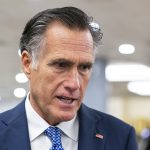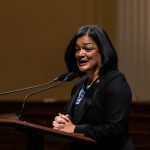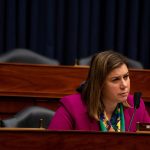The U.S. Capitol Police union is sharply criticizing a new proposal by department leadership to add private security contractors to protect the Capitol, calling the plan “a recipe for disaster.”
“We need to hire more officers — period. The last thing we need are private security contractors who are not trained to our standards,” Gus Papathanasiou, the chair of the union, said in a statement first shared with POLITICO. “In law enforcement, we have to trust the men and women next to us. That trust enabled us, along with our partner agencies, to hold back the attackers on January 6th long enough to safely evacuate all Members of Congress and the Vice President.”
A spokesperson for the Capitol Police had no immediate comment.
In a Sunday morning television interview, Capitol Police Chief Thomas Manger floated a proposal to station contract security guards at some “secondary posts,” such as garages, that Capitol Police leadership believed did not require an armed Capitol Police officer.
“We think that if we are able to put contract security guards at some of those posts, that will free up a number of sworn police officers and we can assign them to where they are needed and where we require actually an armed Capitol Police officer,” he said on Fox News Sunday.
A job posting, which was published on Sunday, calls for applicants to apply to Inter-Con Security Systems, Inc. for the “exciting role of an Unarmed Security Officer” for the Capitol Police.
Listed responsibilities include many of the tasks assigned to current armed Capitol Police officers: “Access Control,” “Processing visitors for entry into a facility,” “Conducting inspections and screenings,” “Patrol and responding to calls,” “Directing traffic,” “Monitoring and operating security and safety systems” and “Reporting incidents and writing reports of the incidents.” Pay starts at $24 an hour with an additional $4.23 an hour for “health and welfare.”
By comparison, a private in the Capitol Police makes about $64,815 annually, according to the department, or roughly $31.16 an hour. On its website, Inter-Con said it has worked with the departments of State, Homeland Security, Energy, Justice and Defense and worked on security of more than 100 U.S. and foreign diplomatic missions in “very high-risk environments such as civil war, cartel violence, epidemics, and terrorist attacks.”
The department is currently coping with a staffing shortfall, with 135 officers having resigned or retired since Jan. 6, though the Capitol Police stress that not all of the departures are related to the attack. Officials aim to hire 280 officers this year — including in recruiting events taking place just a day after the one-year anniversary of Jan. 6.
Manger told POLITICO in a recent interview the department was “probably 400 officers down from where we should be.”
Congress appropriated millions of dollars for the Capitol Police in an emergency July package, including funding to help retain officers and plug security shortfalls around the complex. However, progress on a broader package, including a funding hike for the Capitol Police, has remained elusive.
Papathanasiou noted in his statement on Monday that retired Gen. Russel Honoré, who conducted a security review of Congress, recommended that Congress fund hundreds more officers. He also said he was worried about too few officers being able to respond to rapidly increasing threats to the Capitol or individual senators or representatives. Threat investigations in 2021 are believed to top 9,000 cases, compared to only 902 in 2016, according to statistics Manger recently released.
“We’ve never seen a threat environment like this and given the profound division in this country, this may very well be our new normal,” Papathanasiou said in the statement, timed to the one-year anniversary of Jan. 6, which is Thursday.
The union leader also pointed out that Michael Bolton, the U.S. Capitol Police inspector general, told Congress in December that fewer than a third of Bolton’s 104 recommendations to beef up security at the Capitol have been fully implemented. Bolton warned that major shortfalls remain in training, intelligence and operational planning.
